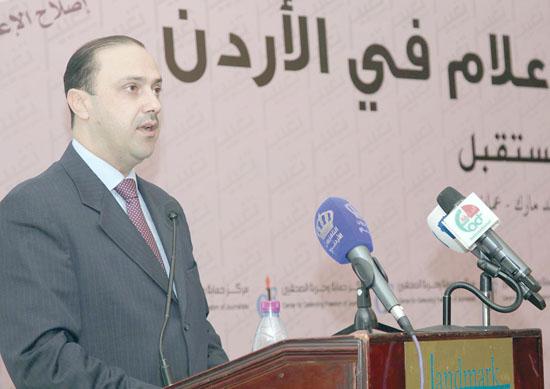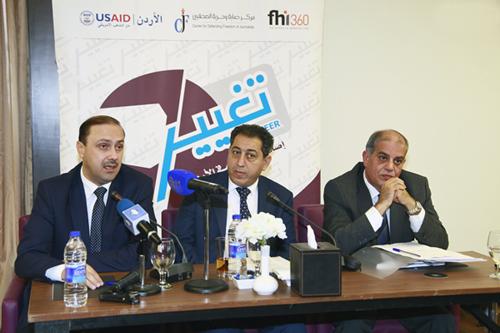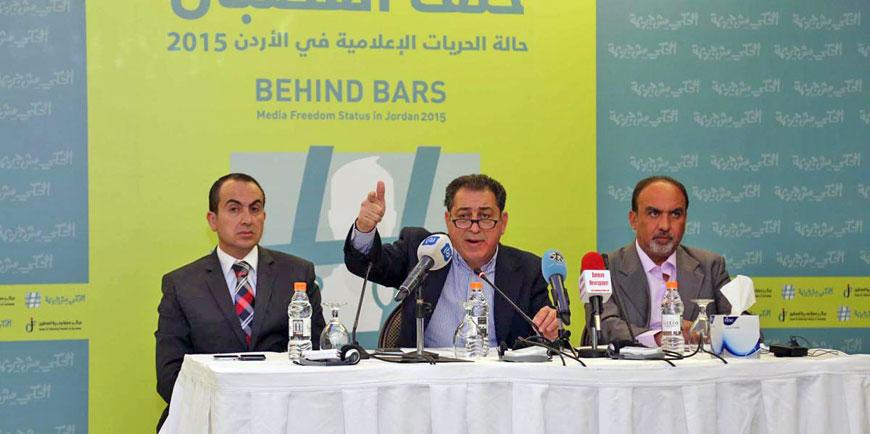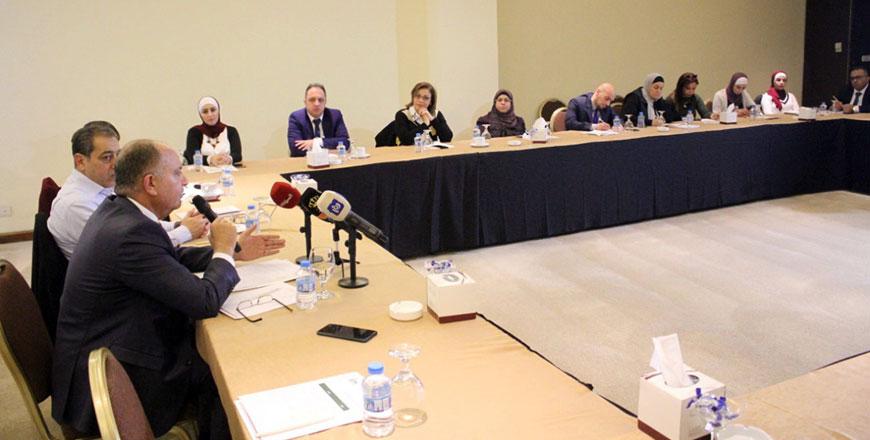You are here
Jordan needs national media, not gov’t mouthpieces — experts
By Laila Azzeh - Mar 28,2015 - Last updated at Mar 28,2015

AMMAN — The mass media should move towards an agenda that is more in tune with national interests, rather than serve as “government mouthpieces”, experts said on Saturday.
Media practitioners, politicians and lawmakers took the podium during the Media Reform in Jordan Forum, engaging in heated debates on aspects dominating the current media scene, starting with legislation.
The one-day forum was organised by the Centre for Defending the Freedom of Journalists (CDFJ) with the support of USAID as part of the NGO FHI 360 project to support civil society organisations’ initiatives.
While some of the participants blamed the “unethical” behaviour of certain media outlets, especially news websites, as the reason behind imposing stricter provisions in the Press and Publications Law, others criticised the law as being “biased” against journalists.
“The entire legislation system in Jordan is chaotic. On top of that, there is no clear national policy towards the media and that is evident by the number of amendments introduced to the Press and Publications Law over the last decade,” said Mohammad Qteishat, a lawyer specialised in media issues.
He called for “reducing the scope of punishment” of media practitioners, otherwise, “the current laws criminalising journalists will only exhaust the media and the prosecution.”
Former media minister Marwan Muasher said journalists should not be arrested for publishing information or opinion pieces, noting that he supports “organising the media rather than monitoring it”.
“The path towards media freedom in Jordan is a very long one,” he indicated, adding that 70 per cent of local journalists have been subjected to attempts to contain them or know of colleagues who have.
“Furthermore, Jordan ranked 155 out of 200 in Freedom House’s media freedom index,” Muasher said.
For his part, Minister of State for Media Affairs and Communications Mohammad Momani stressed the need to bring some changes to a number of laws governing the media, but also said more efforts should be geared towards enhancing media professionalism.
“We only closed down some news websites because they have resorted to the dirtiest forms of blackmail. We support media independence but are against those who cause harm to the country,” Momani, also government spokesperson, added.
CDFJ President Nidal Mansour recommended establishing an independent complaint centre that deals with media-related issues, citing the experience of several “democratic” countries in this field.
“This would ease tension between the state and media,” Mansour said, citing a recent study conducted by CDFJ that showed that the government deals with new media tools as “newborns” in need of constant guardianship and supervision.
According to the study, journalists can be referred to court based on laws in addition the Press and Publication Law, such as the state security and anti-terrorism laws, making all workers in the field susceptible to legal action.
National Centre for Human Rights Chief Commissioner Mousa Burayzat noted that “one of the major issues affecting freedom of expression is the policies of the State Security Court”, arguing that the ban on tackling religious issues is among the main restraint on media freedoms in Jordan.
However, MP Zakariya Sheikh underlined the need to “face the truth about corruption in the media field”.
The CDFJ study criticised the way the state indentifies journalists by limiting them to those who are members of the Jordan Press Association.
“This goes against the law, which bans mandatory membership in associations,” said Mansour.
Moreover, the study noted that the media profession is not women-friendly at several levels, whether in having them in senior jobs or providing a suitable atmosphere for working mothers. In addition, there are no persons with disabilities working in the media field in Jordan.
The forum also included a session to discuss the recommendations of the Human Rights Council’s Universal Periodic Review.
Mansour said that an observatory commission will be established soon to gauge the government’s progress in implementing the recommendations.
Related Articles
AMMAN — Human rights and freedoms are at the top of Jordan’s priorities and the government pledges continued efforts in these areas, Ministe
AMMAN — Ten Jordanian journalists were detained last year under the Anti-Terrorism Law and the Electronic Crimes Law, while the total violat
AMMAN — The government is keen on enhancing the principles of partnership with all civil society institutions, Minister of State for Media A


















